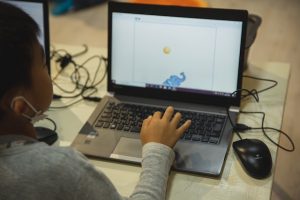Homeschooling gives UK pupils a personalised and flexible education. Homeschooling raises socialisation concerns. Homeschoolers are not socially isolated. Homeschooling gives pupils plenty of chances to make friends and have meaningful conversations. This article will discuss socialisation in best online schools uk, refute myths, and offer ideas for developing connections and communities.
Homeschoolers Need Socialisation. Socialisation helps children acquire social skills, relationships, and a sense of belonging. Homeschooling provides unique socialisation chances in diverse environments. Homeschooled children develop social skills through interactions with their families, friends, neighbours, and members of the community. Besides this, here are some more socialisation:

- Homeschooling Socialisation Myths
Homeschoolers are sometimes misunderstood as socially isolated. Research and homeschooling families disprove this. Homeschooled pupils interact with people of all ages and participate in community-based learning. Homeschooled pupils form close relationships with their families, homeschooling friends, and through participation in extracurricular activities, clubs, sports teams, and community organisations. - Co-Curricular and Extracurricular Activities
Co-curricular and extracurricular activities help homeschoolers socialise and build community. Many towns offer sports, art, music, dancing, drama, and scouting. These activities allow homeschooled youngsters to make friends and improve socially. - Networking through Homeschooling
Homeschooling networks let families socialise and connect. These networks let families connect, share resources, plan outings, and do group activities. They plan field trips, park days, cooperative learning, and special activities. Homeschooling networks allow kids and parents to connect, communicate, and make friends. - Community Service Learning
Homeschooling lets kids get involved in their communities. Encourage pupils to volunteer, work, or join local organisations. Community involvement builds social ties, empathy, compassion, and responsibility. Pupils can volunteer in libraries, retirement homes, food drives, charity events, and environmental clean-ups. These activities improve the community and offer socialisation. - Using Social Media
Homeschoolers today have access to many online socialisation platforms and groups. Pupils can meet classmates with similar interests and educational ambitions on virtual platforms, discussion forums, and social media groups. Online platforms enable collaborative initiatives, virtual clubs, and topical debates. To provide a secure and positive online experience for their children, parents can actively monitor and guide them. - Library and Community Centre Assistance
Community centres and libraries typically offer homeschooling resources and programmes. They host homeschooler-focused courses, reading clubs, educational programmes, and events. Encourage pupils to visit libraries and read challenges and educational programmes. These locations allow homeschoolers to socialise and learn together. - Homeschooling Families Networking
Networking among homeschooling families creates ample opportunities for socialisation. Meet local homeschoolers for park days, study groups, or meetups. These events help pupils make friends, share experiences, and collaborate. Homeschooling families can share ideas, resources, and support. - Community Arts and Sports Programmes
Community sports, arts, and performing arts programmes provide socialisation and skill development. Encourage homeschoolers to join local sports teams or music, art, or theatre classes. These activities let them collaborate, make friends, and share interests. Community programmes allow children to demonstrate their talents, gain self-confidence, and feel connected. - Family and Socialisation
Homeschooling promotes family bonding and socialisation. Family field trips, projects, and talks foster socialisation. Homeschooled children spend more time with their siblings and extended family, fostering family unity and social skills.
UK families seeking a personalised and flexible education for their children can consider homeschooling, often known as home education. Before homeschooling, parents must grasp UK homeschooling laws. Let’s discuss homeschooling laws, including registration, curriculum, assessments, and parents’ and local authorities’ responsibilities.

- Homeschooling Laws
UK parents can homeschool their kids. However, parents must comply with the law. Homeschooling is lawful in England, Wales, and Northern Ireland without permission. Homeschooling parents in Scotland must notify the local authority. Know and follow your region’s rules. - Adequate Education
UK homeschoolers must provide a suitable education. “Suitable education” is not defined in law but is commonly considered to indicate an education that fits the child’s age, ability, and aptitude and prepares them for adulthood. Homeschooled children should obtain an education comparable to that of typical schoolchildren. - Flexible Curriculum
UK homeschoolers are urged to provide a well-rounded education that encompasses a variety of subjects. The UK government advises English, maths, science, and humanities. However, homeschooling allows for customisation to the child’s needs, interests, and learning style. Parents can choose textbooks, resources, and educational materials for their children. - Performance Evaluation
Homeschooling requires progress monitoring and evaluation. Homeschooled pupils don’t have to take standardised tests, but parents should track their progress. Regular tests, evaluations, and portfolios show the child’s educational development. To verify their child’s academic performance, parents may pick GCSEs or A-Levels. - Parental Duties
Homeschooling parents must understand their duties. Parents must provide their children with a well-rounded education. This comprises regular, structured instruction, meeting the child’s educational needs, and fostering intellectual, social, and emotional growth. It’s crucial to track a child’s progress, provide a safe learning environment, and support their well-being. - Local Government
UK local authorities must provide all children with suitable education, whether they attend school or homeschool. Homeschooling is permitted, although local authorities can ask about education for homeschooled children. They may request curriculum, instructional techniques, and child progress information. Communicate with the local authority and comply with reasonable demands for information.

- Support Groups
UK organisations, resources, and support groups support homeschooling. Homeschooling associations, internet forums, and local support groups can offer assistance, advice, and collaboration opportunities. These networks can also assist parents with legal needs, resource access, and homeschooling legislative updates. - Regular self-assessment
Homeschooling needs constant evaluation and reflection. Homeschooling parents should evaluate their teaching techniques, curriculum, and child’s growth. Self-assessment helps you find areas for improvement, explore new educational materials, and change your approach to keep your child’s education suitable. - Transitioning to School
Homeschooled pupils may decide to attend college or a formal school. This change requires knowledge of its requirements and methods. Homeschooled pupils may need to show portfolios or test scores. Make sure you meet the admission requirements of the schools your child wants to attend. - Homeschooling Parent Training
Homeschooling parents can improve their teaching skills, learn about educational practises, and keep current on legal obligations by continuing professional development. Attend homeschooling conferences, workshops, and training sessions to learn, network, and get resources. Professional development opportunities inspire, support, and help you improve your homeschooling.
UK homeschoolers must understand the law. You can confidently homeschool by understanding the legal requirements, offering a suitable education, assessing development, and satisfying your duties. Keep in touch with the local authority, use homeschooling networks, and keep learning. UK households can benefit from homeschooling if they grasp the law and provide a well-rounded education.




